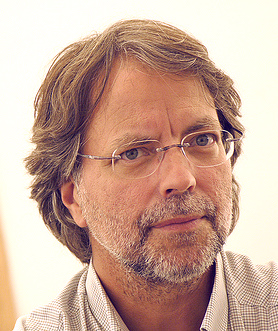Mia Couto
 On 5 July 1955, Mozambican writer and biologist António Emílio Leite Couto, better known as Mia Couto, was born in Beira Mozambique. He is considered one of the most important writers in Mozambique. He won the Camões Prize in 2013, the most important literary award in the Portuguese language, and the Neustadt International Prize for Literature in 2014.
On 5 July 1955, Mozambican writer and biologist António Emílio Leite Couto, better known as Mia Couto, was born in Beira Mozambique. He is considered one of the most important writers in Mozambique. He won the Camões Prize in 2013, the most important literary award in the Portuguese language, and the Neustadt International Prize for Literature in 2014.
Mia Couto is the son of Portuguese emigrants who moved to the Portuguese colony in the 1950s. When he was 14, some of his poetry was published in a local newspaper, Notícias da Beira. Three years later, in 1971, he moved to the capital Lourenço Marques (now Maputo) and began to study medicine at the University of Lourenço Marques. During this time, the anti-colonial guerrilla and political movement FRELIMO was struggling to overthrow the Portuguese colonial rule in Mozambique.
In April 1974, after the Carnation Revolution in Lisbon and the overthrow of the Estado Novo regime, Mozambique was about to become an independent republic. In 1974, FRELIMO asked Couto to suspend his studies for a year to work as a journalist for Tribuna until September 1975 and then as the director of the newly created Mozambique Information Agency (AIM). Later, he ran Tempo magazine until 1981. His first book of poems, Raiz de Orvalho. Couto continued working for the newspaper Notícias until 1985 when he resigned to finish his course of study in biology.
Couto’s books have been published in over 30 languages. In many of his texts, he undertakes to recreate the Portuguese language by infusing it with regional vocabulary and structures from Mozambique, thus producing a new model for the African narrative. He has been noted for creating proverbs, sometimes known as "improverbs", in his fiction, as well as riddles, legends, metaphors, giving his work a poetic dimension.
As a biologist, he directs the Environmental Impact Assessments, IMPACTO Lda., a company that carries out environmental impact studies in Mozambique. Mia Couto has carried out research in several areas, focusing on coastal zone management. In addition, he teaches several courses at the Eduardo Mondlane University in Maputo.
(Source: Wikipedia)
Selected publications
About Mia Couto
A companion to Mia Couto / Grant Hamilton; David Huddart. - Woodbridge, Suffolk : James Currey, cop. 2016
O projecto literário de Mia Couto / Peter Petrov. - Lisboa : Esfera do Caos Editores, Outubro de 2016
Dossier Autour de Mia Couto / Marie-Francoise Bidault.
Études littéraires africaines , no. 25, p. 4-63, 2008
A postmodern nationalist : truth, orality, and gender in the work of Mia Couto / Phillip Rothwell. - Lewisburg : Bucknell University Press, 2004
Mia Couto : briciação vocabular / Fernanda Cavacas. - Lisboa : Mar Além [etc.], 1999
Works by Mia Couto
A confissão da leoa / Mia Couto. - Alfragide : Caminho, 2012
English translation: Confession of the Lioness
The blind fisherman / Mia Couto. - Johannesburg : Penguin Books, 2010
A compilation of Mia Couto’s early short stories.
De laatste vlucht van de flamingo / Mia Couto. - Amsterdam : Van Gennep, cop. 2007
Translation of: O último voo do flamingo
Sleepwalking land / Mia Couto. - London : Serpent's Tail ; Cape Town : Double Storey, 2006
Translation of: Terra Sonâmbula
Every man is a race / Mia Couto. - Oxford [etc.] : Heinemann, 1994
Translation of selected works from: Cada homem é uma raça, and Cronicando
For more publications see the ASCL Library Catalogue
A língua, a literatura e a vida em Moçambique : entrevista com Mia Couto, NexoJornal, 12 april 2019
Timeline of Mozambican writers via Wikidata

